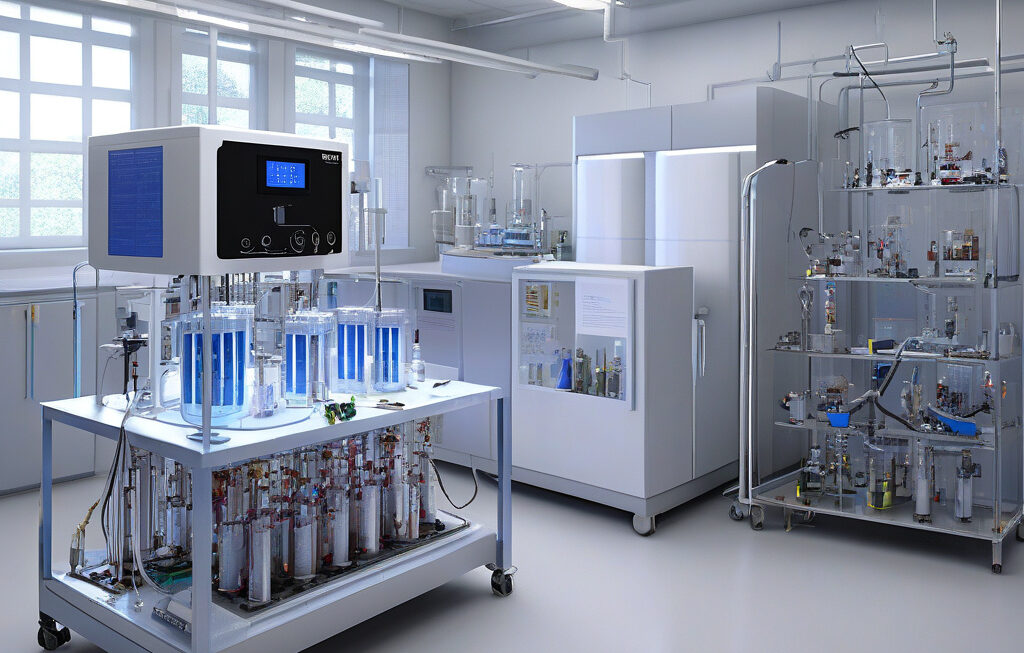Germany Builds AI-Powered Plant to Repurpose Used EV Batteries for Grid Storage
In the realm of sustainable energy solutions, the repurposing of used electric vehicle (EV) batteries has emerged as a promising venture. Traction batteries, which power EVs, tend to lose performance after years of use. However, many of these batteries still retain 70 to 80 percent of their original capacity, making them suitable candidates for second-life applications such as grid storage. Recognizing this opportunity, Germany has taken a significant step forward by investing in an AI-powered plant dedicated to transforming used EV batteries into energy storage units for the grid.
The utilization of artificial intelligence (AI) in this context marks a pivotal advancement in the field of energy storage and management. By harnessing AI algorithms, the plant can efficiently assess the health and capabilities of each battery, determining the most suitable role for it within the grid storage system. This level of precision ensures that the repurposed batteries operate at optimal performance levels, maximizing their utility and lifespan.
Moreover, the integration of AI enables real-time monitoring and adjustments, enhancing the overall stability and reliability of the grid storage network. Through continuous data analysis and predictive maintenance, the plant can proactively address potential issues, ensuring seamless operation and longevity of the repurposed batteries.
One of the key benefits of repurposing used EV batteries for grid storage lies in its environmental impact. By extending the lifespan of these batteries, the need for raw materials and energy-intensive manufacturing processes for new batteries is significantly reduced. This not only conserves valuable resources but also minimizes the carbon footprint associated with battery production, aligning with Germany’s commitment to sustainability and carbon neutrality.
Furthermore, repurposing used EV batteries for grid storage contributes to the development of a circular economy model. Rather than discarding batteries at the end of their automotive use, giving them a second life in energy storage applications adds value to the materials and promotes a more efficient use of resources. This circular approach fosters economic growth while mitigating environmental harm, exemplifying the principles of a sustainable and responsible industry.
The initiative undertaken by Germany to establish an AI-powered plant for repurposing EV batteries sets a precedent for innovation and sustainability in the energy sector. By leveraging advanced technologies and embracing the principles of circular economy, Germany is not only addressing the challenges of battery waste and energy storage but also paving the way for a more resilient and eco-friendly energy infrastructure.
As the demand for energy storage solutions continues to rise with the growth of renewable energy sources, initiatives like the AI-powered plant in Germany showcase the potential for repurposed EV batteries to play a crucial role in shaping the future of sustainable energy systems. Through strategic investments, technological advancements, and a commitment to environmental stewardship, countries can harness the latent potential of used batteries to drive positive change in the energy landscape.
In conclusion, the establishment of an AI-powered plant in Germany to repurpose used EV batteries for grid storage exemplifies a forward-thinking approach to energy sustainability and innovation. By capitalizing on the value of second-life batteries and leveraging AI capabilities, Germany is leading the way towards a more efficient, eco-conscious energy ecosystem that holds promise for a greener future.
sustainableenergy, AItechnology, energyinnovation, circular economy, environmentalimpact












